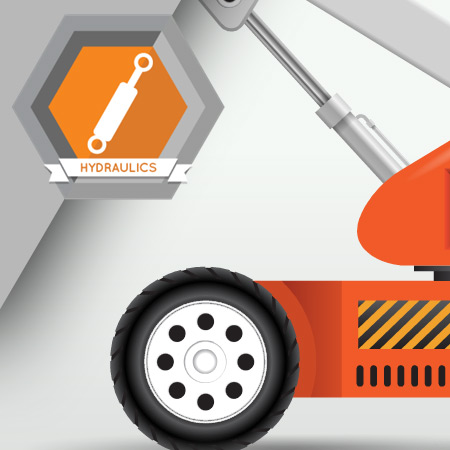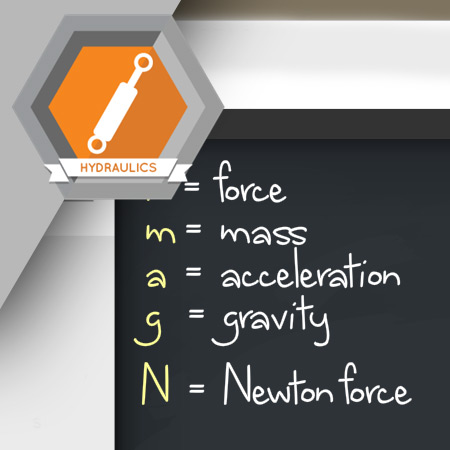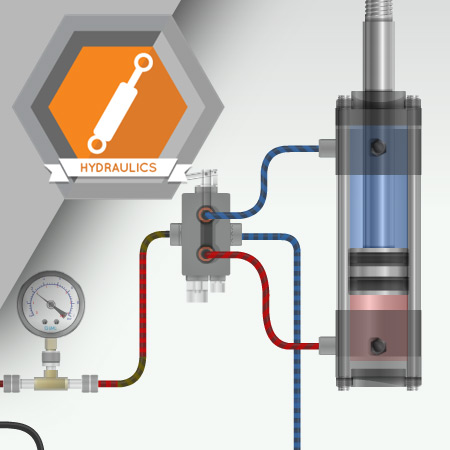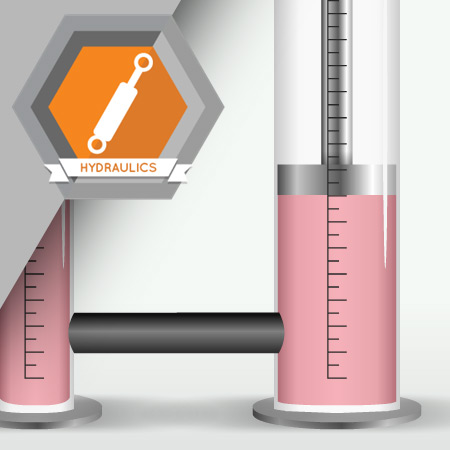
A hydraulic system uses liquid to transmit power. It is designed to create the energy required in the fluid to make the entire system operate.
Learning Objectives
- Understand fluid power
- Define hydraulics
- Describe the differences between hydrostatic and hydrodynamic systems
- List the advantages of a fluid power system
- Identify the basic components of a fluid power system
- Compare a hydraulic and pneumatic system
- Compare four different types of power systems
Language: English
Estimated Time (Hrs.): 1.1
Micro-module: No
Micro-module Series: No

Hydraulics is based on physics. As a result, it is crucial that you understand the theoretical concepts and fundamental laws applicable to hydraulics. Parameters to control include force, speed, acceleration, path, flow rate, and pressure. In addition, you need to understand the fundamental laws of hydraulics, such as the continuity equation, energy equation, and pressure losses due to friction.
Learning Objectives
- Analyze and discuss the theoretical concepts applicable to hydraulics
- Summarize parameters and their units
- Understand the fundamental laws of hydraulics
Language: English
Estimated Time (Hrs.): 1.3
Micro-module: No
Micro-module Series: No

Hydraulic fluid plays an important role in a hydraulic system. Without hydraulic fluid, the service life of other components would be much shorter.
Learning Objectives
- Identify the functions of hydraulic fluids
- Understand the different types of hydraulic fluids
- Describe the different classifications of hydraulic oils and flame-retardant liquids
- Know how to select hydraulic oils based on characteristics and purpose
- Understand the importance of periodically checking hydraulic fluids
Language: English
Estimated Time (Hrs.): 0.9
Micro-module: No
Micro-module Series: No

Hydraulic systems use fluid power to perform work. A simple hydraulic system consists of several common components, including a tank, pump, filter, heat exchanger, accumulator, valve, and actuator.
Learning Objectives
- Understand the purpose of a hydraulic system
- Identify the major components of a simple hydraulic system
- Describe the purpose of a hydraulic tank
- Identify the components of a hydraulic tank
- Describe the purpose of a hydraulic pump
- Understand how a hydraulic pump works
- Describe the purpose of a hydraulic filter
- Understand how a hydraulic filter works
- Describe the purpose of a heat exchanger
- Understand how a heat exchanger works
- Explain the purpose of a hydraulic accumulator
- Understand how a hydraulic accumulator works
Language: English
Estimated Time (Hrs.): 1.4
Micro-module: No
Micro-module Series: No
